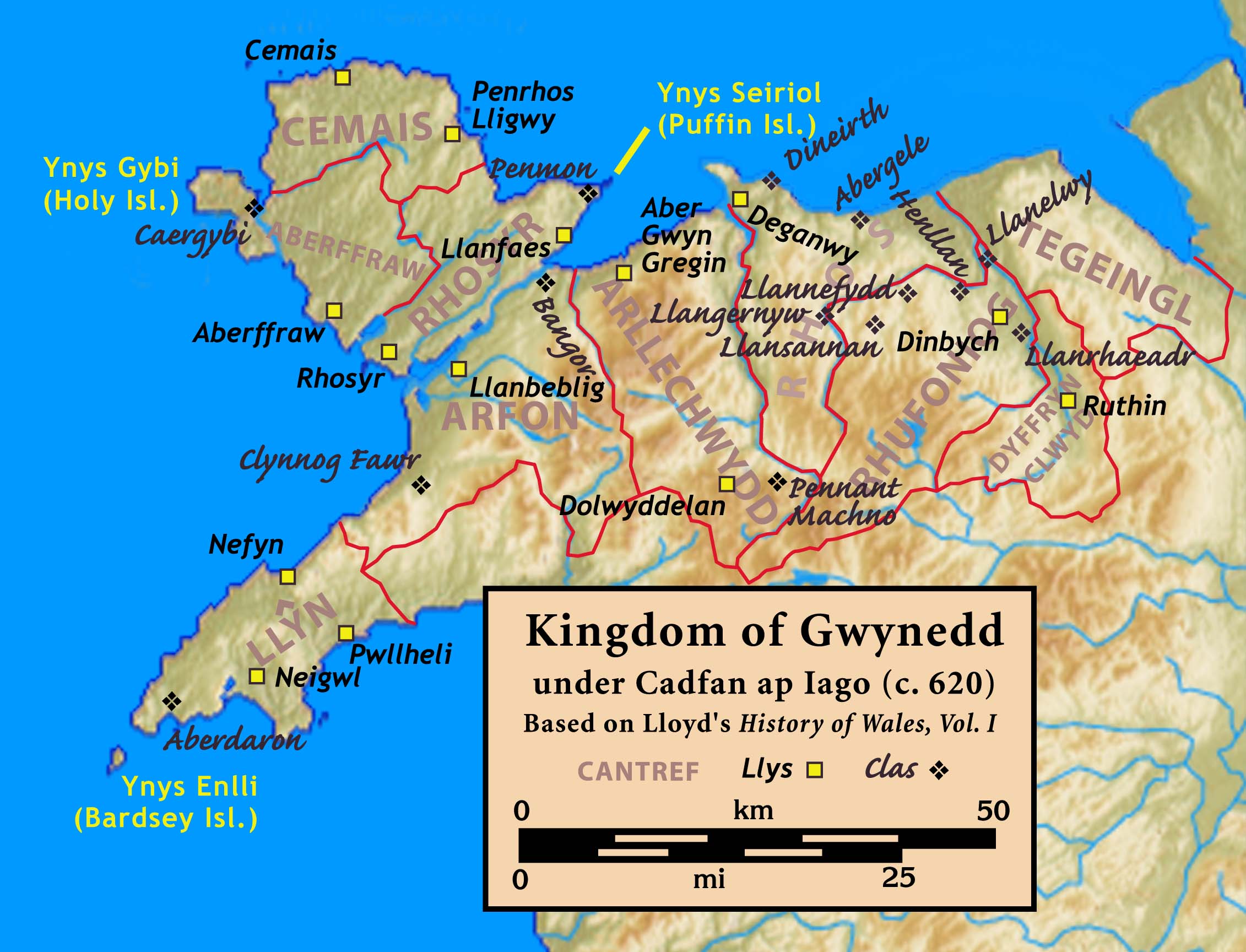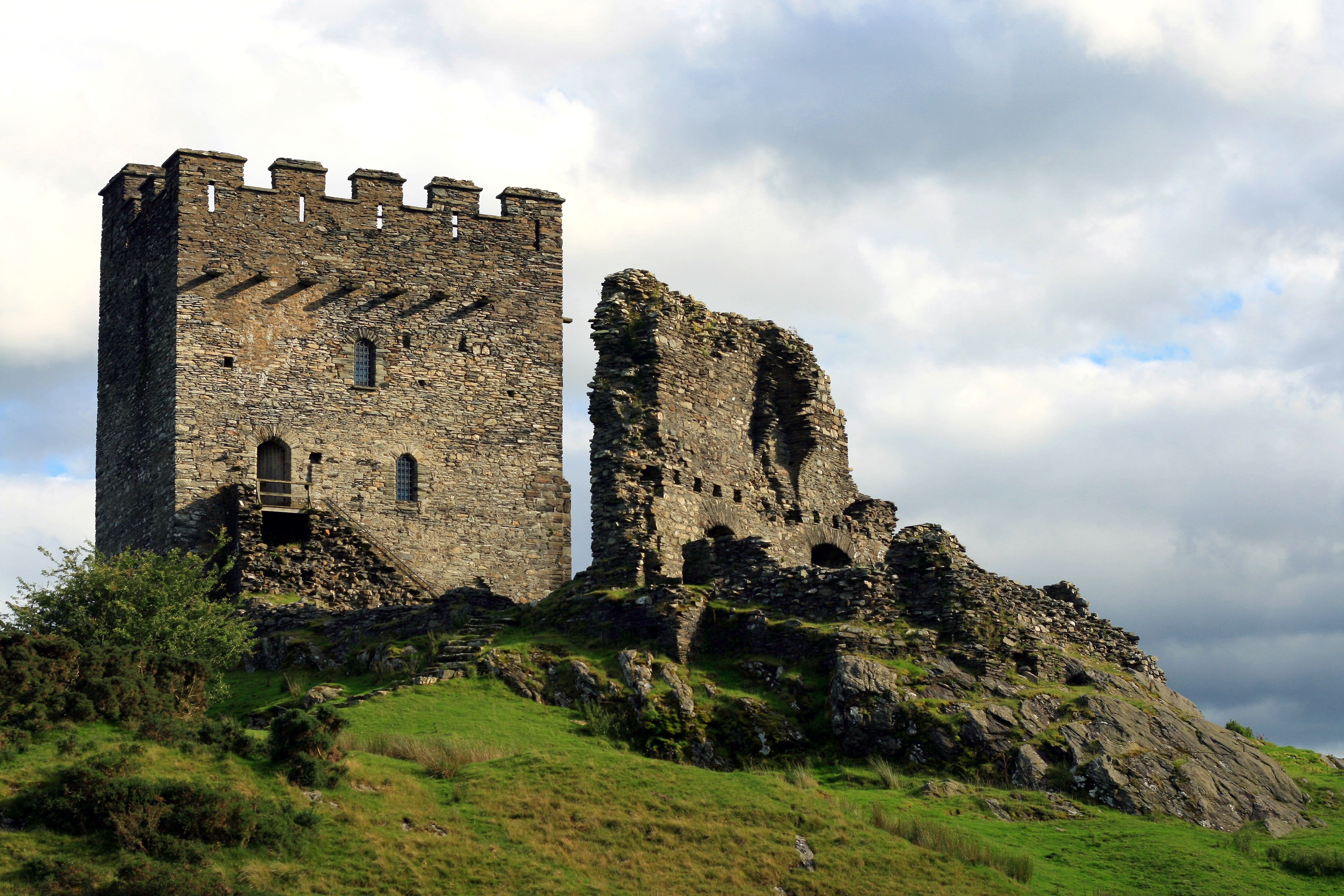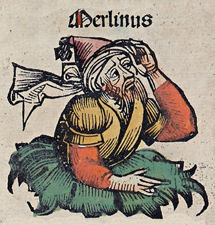|
Madoc (poem)
''Madoc'' is an 1805 epic poem composed by Robert Southey. It is based on the legend of Madoc, a supposed Welsh prince who fled internecine conflict and sailed to America in the 12th century. The origins of the poem can be traced to Southey's schoolboy days when he completed a prose version of Madoc's story. By the time Southey was in his twenties, he began to devote himself to working on the poem in hopes that he could sell it to raise money to fulfill his ambitions to start a new life in America, where he hoped to found Utopian commune or "Pantisocracy". Southey finally completed the poem as a whole in 1799, at the age of 25. However, he began to devote his efforts into extensively editing the work, and ''Madoc'' was not ready for publication until 1805. It was finally published in two volumes by the London publisher Longman with extensive footnotes. The first half of the poem, ''Madoc in Wales'', describes Madoc, a young Welsh nobleman, whose family breaks down into a series ... [...More Info...] [...Related Items...] OR: [Wikipedia] [Google] [Baidu] |
Madoc Titlepage
Madoc ab Owain Gwynedd (also spelled Madog) was, according to folklore, a Welsh prince who sailed to America in 1170, over three hundred years before Christopher Columbus's voyage in 1492. According to the story, he was a son of Owain Gwynedd, and took to the sea to flee internecine violence at home. The "Madoc story" legend evidently evolved out of a medieval tradition about a Welsh hero's sea voyage, to which only allusions survive. However, it attained its greatest prominence during the Elizabethan era, when English and Welsh writers wrote of the claim that Madoc had come to the Americas as an assertion of prior discovery, and hence legal possession, of North America by the Kingdom of England. The Madoc story remained popular in later centuries, and a later development asserted that Madoc's voyagers had intermarried with local Native Americans, and that their Welsh-speaking descendants still live somewhere in the United States. These "Welsh Indians" were credited with th ... [...More Info...] [...Related Items...] OR: [Wikipedia] [Google] [Baidu] |
Kingdom Of Gwynedd
The Kingdom of Gwynedd (Medieval Latin: ; Middle Welsh: ) was a Welsh kingdom and a Roman Empire successor state that emerged in sub-Roman Britain in the 5th century during the Anglo-Saxon settlement of Britain. Based in northwest Wales, the rulers of Gwynedd repeatedly rose to dominance and were acclaimed as " King of the Britons" before losing their power in civil wars or invasions. The kingdom of Gruffydd ap Llywelynthe King of Wales from 1055 to 1063was shattered by a Saxon invasion in 1063 just prior to the Norman invasion of Wales, but the House of Aberffraw restored by Gruffudd ap Cynan slowly recovered and Llywelyn the Great of Gwynedd was able to proclaim the Principality of Wales at the Aberdyfi gathering of Welsh princes in 1216. In 1277, the Treaty of Aberconwy between Edward I of England and Llewelyn's grandson Llywelyn ap Gruffudd granted peace between the two but would also guarantee that Welsh self-rule would end upon Llewelyn's death, and so it represented ... [...More Info...] [...Related Items...] OR: [Wikipedia] [Google] [Baidu] |
Napoleon
Napoleon Bonaparte ; it, Napoleone Bonaparte, ; co, Napulione Buonaparte. (born Napoleone Buonaparte; 15 August 1769 – 5 May 1821), later known by his regnal name Napoleon I, was a French military commander and political leader who rose to prominence during the French Revolution and led successful campaigns during the Revolutionary Wars. He was the ''de facto'' leader of the French Republic as First Consul from 1799 to 1804, then Emperor of the French from 1804 until 1814 and again in 1815. Napoleon's political and cultural legacy endures to this day, as a highly celebrated and controversial leader. He initiated many liberal reforms that have persisted in society, and is considered one of the greatest military commanders in history. His wars and campaigns are studied by militaries all over the world. Between three and six million civilians and soldiers perished in what became known as the Napoleonic Wars. Napoleon was born on the island of Corsica, not long af ... [...More Info...] [...Related Items...] OR: [Wikipedia] [Google] [Baidu] |
Calvinists
Calvinism (also called the Reformed Tradition, Reformed Protestantism, Reformed Christianity, or simply Reformed) is a major branch of Protestantism that follows the theological tradition and forms of Christian practice set down by John Calvin and other Reformation-era theologians. It emphasizes the sovereignty of God and the authority of the Bible. Calvinists broke from the Roman Catholic Church in the 16th century. Calvinists differ from Lutherans (another major branch of the Reformation) on the spiritual real presence of Christ in the Lord's Supper, theories of worship, the purpose and meaning of baptism, and the use of God's law for believers, among other points. The label ''Calvinism'' can be misleading, because the religious tradition it denotes has always been diverse, with a wide range of influences rather than a single founder; however, almost all of them drew heavily from the writings of Augustine of Hippo twelve hundred years prior to the Reformation. The ... [...More Info...] [...Related Items...] OR: [Wikipedia] [Google] [Baidu] |
Anti-Catholic
Anti-Catholicism is hostility towards Catholics or opposition to the Catholic Church, its Hierarchy of the Catholic Church, clergy, and/or its adherents. At various points after the Reformation, some majority Protestantism, Protestant states, including Kingdom of England, England, Kingdom of Prussia, Prussia, Kingdom of Scotland, Scotland, and the United States, turned anti-Catholicism, opposition to the Pope (Popery, anti-Papalism), mockery of Sacraments of the Catholic Church, Catholic rituals, and opposition to Catholic adherents into major political themes. The anti-Catholic sentiment which resulted from this trend frequently led to religious discrimination against Catholic communities and individuals and it occasionally led to the religious persecution of them (frequently, they were List of religious slurs#Catholics, derogatorily referred to as "Popery, papists" or "Romanism, Romanists" in English-speaking world, Anglophone and Protestant countries.) Historian John Wolffe i ... [...More Info...] [...Related Items...] OR: [Wikipedia] [Google] [Baidu] |
Mexico
Mexico (Spanish: México), officially the United Mexican States, is a country in the southern portion of North America. It is bordered to the north by the United States; to the south and west by the Pacific Ocean; to the southeast by Guatemala, Belize, and the Caribbean Sea; and to the east by the Gulf of Mexico. Mexico covers ,Mexico ''''. . making it the world's 13th-largest country by are ... [...More Info...] [...Related Items...] OR: [Wikipedia] [Google] [Baidu] |
Rhodri Ab Owain Gwynedd
Rhodri ab Owain Gwynedd ( 1147 – 1195) was prince of part of Gwynedd, one of the kingdoms of medieval Wales. He ruled from 1175 to 1195. On the death of Owain Gwynedd in 1170, fighting broke out among his nineteen sons over the division of his kingdom. Rhodri and his brother Dafydd ab Owain Gwynedd, Owain's legitimate sons by his wife Cristina, defeated and killed their half brother Hywel ab Owain Gwynedd at Pentraeth that year. The other sons were largely killed or exiled between 1170 and 1174. Rhodri acquired part of Gwynedd, but soon afterwards came under pressure from his brother Dafydd who captured and imprisoned him. In 1175, Rhodri escaped from captivity and was able to gain enough support to drive Dafydd out of the part of Gwynedd situated west of the River Conwy. Dafydd and Rhodri then agreed to the partition of Gwynedd between them, with Dafydd retaining only Gwynedd east of the Conwy. Rhodri and his family are mentioned in ''Descriptio Cambriae'' by Gerald of Wales ... [...More Info...] [...Related Items...] OR: [Wikipedia] [Google] [Baidu] |
Llywelyn The Great
Llywelyn the Great ( cy, Llywelyn Fawr, ; full name Llywelyn mab Iorwerth; c. 117311 April 1240) was a King of Gwynedd in north Wales and eventually " Prince of the Welsh" (in 1228) and "Prince of Wales" (in 1240). By a combination of war and diplomacy he dominated Wales for 45 years. During Llywelyn's childhood, Gwynedd was ruled by two of his uncles, who split the kingdom between them, following the death of Llywelyn's grandfather, Owain Gwynedd, in 1170. Llywelyn had a strong claim to be the legitimate ruler and began a campaign to win power at an early age. He was sole ruler of Gwynedd by 1200 and made a treaty with King John of England that year. Llywelyn's relations with John remained good for the next ten years. He married John's natural daughter Joan in 1205, and when John arrested Gwenwynwyn of Powys in 1208, Llywelyn took the opportunity to annex southern Powys. In 1210, relations deteriorated, and John invaded Gwynedd in 1211. Llywelyn was forced to seek terms and to ... [...More Info...] [...Related Items...] OR: [Wikipedia] [Google] [Baidu] |
King Arthur
King Arthur ( cy, Brenin Arthur, kw, Arthur Gernow, br, Roue Arzhur) is a legendary king of Britain, and a central figure in the medieval literary tradition known as the Matter of Britain. In the earliest traditions, Arthur appears as a leader of the post-Roman Britons in battles against Saxon invaders of Britain in the late 5th and early 6th centuries. He appears in two early medieval historical sources, the ''Annales Cambriae'' and the ''Historia Brittonum'', but these date to 300 years after he is supposed to have lived, and most historians who study the period do not consider him a historical figure.Tom Shippey, "So Much Smoke", ''review'' of , ''London Review of Books'', 40:24:23 (20 December 2018) His name also occurs in early Welsh poetic sources such as ''Y Gododdin''. The character developed through Welsh mythology, appearing either as a great warrior defending Britain from human and supernatural enemies or as a magical figure of folklore, sometimes associated wi ... [...More Info...] [...Related Items...] OR: [Wikipedia] [Google] [Baidu] |
Merlin
Merlin ( cy, Myrddin, kw, Marzhin, br, Merzhin) is a mythical figure prominently featured in the legend of King Arthur and best known as a mage, with several other main roles. His usual depiction, based on an amalgamation of historic and legendary figures, was introduced by the 12th-century British author Geoffrey of Monmouth. It is believed that Geoffrey combined earlier tales of Myrddin and Ambrosius, two legendary Briton prophets with no connection to Arthur, to form the composite figure called Merlinus Ambrosius ( cy, Myrddin Emrys, br, Merzhin Ambroaz). Geoffrey's rendering of the character became immediately popular, especially in Wales. Later writers in France and elsewhere expanded the account to produce a fuller image, creating one of the most important figures in the imagination and literature of the Middle Ages. Merlin's traditional biography casts him as an often-mad being born of a mortal woman, sired by an incubus, from whom he inherits his supernatural powe ... [...More Info...] [...Related Items...] OR: [Wikipedia] [Google] [Baidu] |
Owain Cyfeiliog
Owain ap Gruffydd (c. 1130–1197) was a prince of the southern part of Powys and a poet. He is usually known as Owain Cyfeiliog to distinguish him from other rulers named Owain, particularly his contemporary, Owain ap Gruffydd of Gwynedd, who is known as Owain Gwynedd. Owain was the son of Gruffydd ap Maredudd (and thus grandson of Maredudd ap Bleddyn) and nephew of Madog ap Maredudd, the last prince of the whole of Powys. Madog gave his nephew the cantref of Cyfeiliog to rule in 1147. On Madog's death in 1160 Owain became the ruler of most of southern Powys (this became known as Powys Wenwynwyn after it was inherited by his son). He married Gwenllian, one of the daughters of Owain Gwynedd. He is recorded as having been in alliance with the other Welsh princes to withstand the invasion of 1165 by King Henry II of England. Thereafter he usually followed a policy of supporting the English crown. In 1170 he gave land for the founding of the abbey of Strata Marcella. In 1188, however ... [...More Info...] [...Related Items...] OR: [Wikipedia] [Google] [Baidu] |




.jpg)


